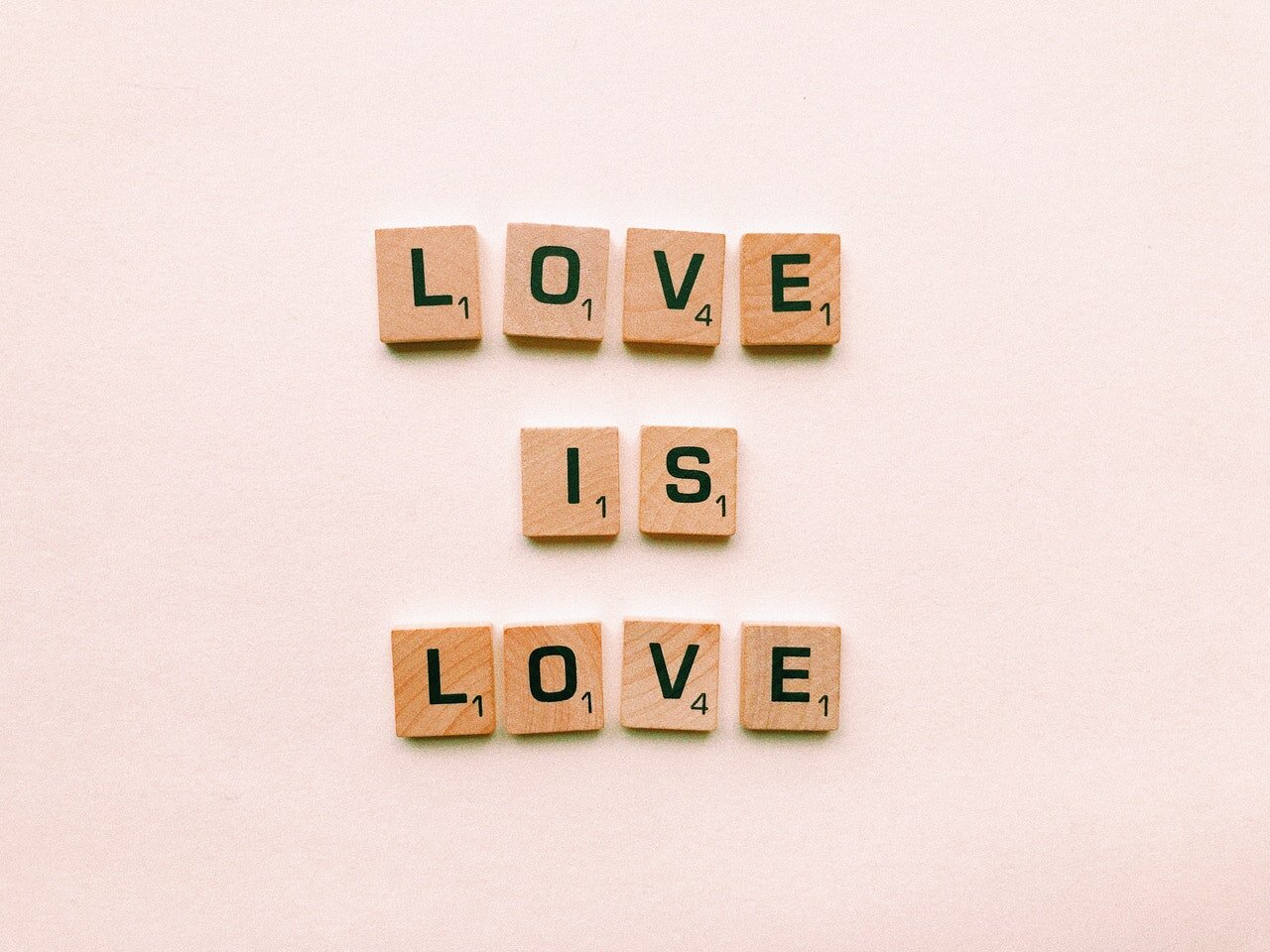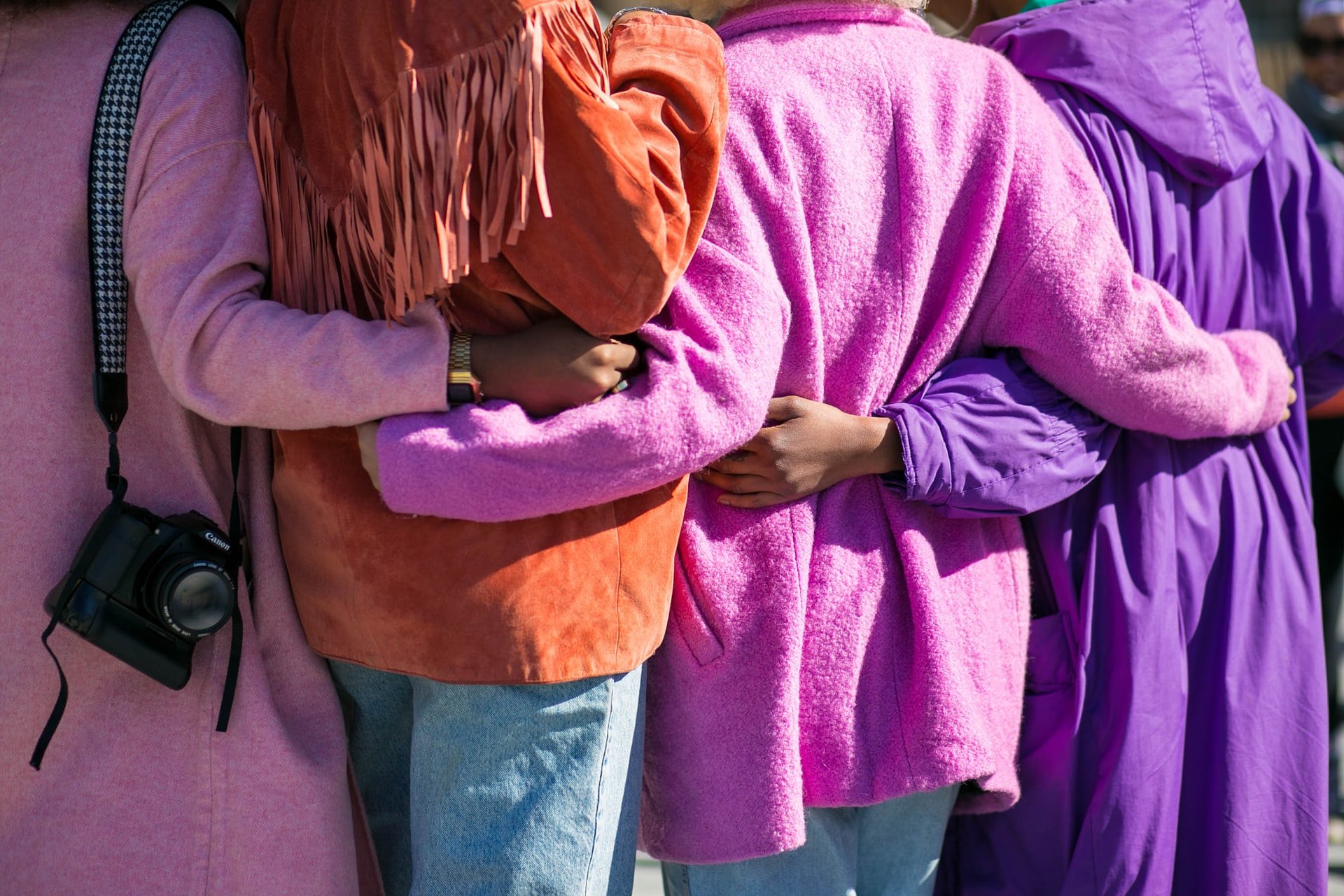Share This Article
Netra Hankins has a message for those who find girls kissing girls enjoyable (and are not queer).
You see two girls are kissing at a party. It’s natural, easy on the eyes, perhaps you even think it’s hot. They may not even be in a relationship. It may be a couple showing affection, but it also might be two drunk friends sharing a platonic pash. Who cares? Like you thought before… it’s hot.
Yet you see two boys kissing at a party and the first thing that comes to your head is unnatural, gross, or even not masculine. And the thought of two guy friends sharing a pash at a party is almost unheard of. Welcome to the world of double standards. If you see two girls kissing, it’s normal. Think about that word normal. The culture of girl-on-girl relationships is more normalised on a multitude of levels than boy on boy relationships. But there’s a lot more to this than initially meets the eye.
Given this, this article will address the difference in the perceptions of lesbian couples and the perceptions of gay couples despite both falling under the same umbrella of homosexual relationships. Western society seems to be increasingly accepting of the LGBTQIA+ community and this is undoubtedly a sign of immense progress. Especially when not so long ago, intolerance of the LGBTQIA+ community was basically unquestioned.
However, there remain layers of oppression which are covert and more difficult to see; layers of oppression which lie within the subconscious and shift our perception of queer individuals. Yet, these layers are often mistaken merely as accepted reality. To dissect these accepted truths is to escape a realm of ignorance and embrace one of self-reflection and critique. This article will deconstruct these thoughts and seek to inform you as to why ignorance and perpetuation of these norms is so destructive.
I have felt these norms and accepted reality. I live in this accepted reality every time I come out as bisexual and someone thinks it’s funny to ask me for a threesome with another girl. It’s not. Not everyone makes these jokes, some people just think about it instead of saying it to my face. But the bottom line is…
If you find girls kissing girls enjoyable (and you’re not queer): this article is for you.
Back to what I was saying before about the largely accepted culture of girl and girl relationships being more normalised than boy and boy relationships. It may seem like a trivial observation to make, but the roots of the answer delve far deeper than what one might expect. How can it be that girls kissing girls is more normalised when both boy and girl forms of homosexual culture are equally homosexual? The answer can be explained in two interconnected parts: how men perceive women, and how men perceive men.
Part 1: How men perceive women.
How men perceive women has affected the perception of women as a whole. This becomes clear once we explore the historical treatment and perceptions of women within the patriarchy.
How have women historically been perceived?
Women have existed as inherently sexual beings that serve little purpose other than for the pleasure of men. I know that this may seem a heavy-handed blanket statement but once you accept that until now women have had to fight for every right, (whether it is the right to education, right to work, right to equal pay, right to their own reproductive capacities, and so forth) because they have not been recognised as being worthy of these rights, it becomes clear that the only qualities that women have never had to fight for (on the contrary, have had thrust upon them) is the right to exist in ways that benefit men. This largely includes sex, maintenance of the nuclear household, and the mothering of children.
Gerda Lerner’s ‘The Creation of Patriarchy’ traces the origins of misogyny back in 3100 BC and their effect on the patriarchal concepts that exist in today’s western society. 3100 BC is a long time ago. The fact that misogyny has been amplified for so long of course means that it has subconsciously corroded the thought of society today.
Below are some key examples of how women have existed as sexual beings to the benefit of men.
Everyone loves boobs…right?
The very perception of the female body is heavily (if not entirely) dictated by male desire. A key example of this was driven by the U.S in the 19th century by the sexualisation of breasts. This was largely influenced by pornographic films and magazines that aimed to emphasize breasts as a focal point for the male sexual gaze. It grew so popular that it facilitated the creation of companies like Playboy in 1953, a men’s magazine, featuring women posing in revealing clothing. The magazine was so ubiquitous that the normalisation of sexualising breasts became second nature.
Concurrently, the controversy surrounding breastfeeding in public grew as more women were outwardly shamed for trying to breastfeed their babies outside their homes. For simply feeding and caring for their children while engaging in a natural process, women have been, and continue to be harassed, or labelled as indecent. Even the mere exposure of a woman’s breasts while breastfeeding was considered insulting to the public eye and regarded as an activity that was best kept private.
How can it be that the same body part (breasts) are acceptable when they are exploited for male pleasure but are looked down upon when they are used for their natural purpose?
Female nudity is only condoned when it serves the purpose of pleasing men. As soon as a woman uses her body for her own purposes, then it is no longer perceived as ‘sexy’, it is no longer perceived as ‘hot’; there is no space for it in a world where men dictate a woman’s worth.
Women are either virgins or whores. Tell me I’m wrong.
This is further emphasised by modern manifestations of the Madonna-whore complex. Simply put, this dichotomy denotes the polarisation of the perceptions of women as either being good (pure, chaste virgins) or bad (promiscuous, seductive whores) with no between.
An example of this is the recent ‘WAP’ music video released by Cardi B and Megan Thee Stallion which was considered highly controversial and accumulated critical backlash. To some, the video was an empowering feminist anthem while to others it was criticised as being counterproductive towards the feminist movement. The main cause for uproar in ‘WAP’, which is an “acronym for a well lubricated vagina”, has come from the unbearable concept of women glorifying their sex lives and taking ownership of their sexuality.
In other words, women speaking about sex in music the way men have for years. Because if these women are making songs glorifying sex, then it is impossible for these female artists to be pure and chaste ‘Madonnas’, which leaves only space for them to exist as ‘whores’.
Cee Lo Green, a well-known American singer/rapper as well as one of the many men in the music industry who spoke up about their dislike for the song, described the music as “shameless” and “disappointing on a personal and moral level”. Many of his fans resonated with this comment. It seems almost comical then (if not absurdly hypocritical) that Cee Lo Green has also been at the centre of several allegations of sexual assault, and writing lyrics in his songs that strongly allude to him engaging in drug-facilitated sexual assault. In one of his songs “Necromancer” he sings “I’d have my way with what’s left of the will in her / Cosmopolitans and cocaine and an occasional pill in her”. To reiterate, this is a man who has been accused of rape, has been charged for drugging women, and even claimed that it’s not rape if the woman is unconscious.
To say that women taking ownership of their sexuality through music is “disappointing on a …moral level”, while drugging a woman for sex is morally acceptable (and worth glorifying in a song), is a perfect example of how for as long as a women’s sexuality does not serve to the sole benefit a man, any form of attack will be used to discredit its success. It is not possible for women who take ownership of their bodies to be good (because good means chastity and purity). The very essence of the ‘whore’ component of the Madonna-whore complex is that it renders all women who even attempt to claim back the perception of their bodies, to be then perceived as impure and promiscuous.
While the case of Cee Lo Green’s response is only one example, it serves as a rather apt reflection of how embedded these core beliefs and values run throughout our (Western) society. Moreover, while I know many of the people reading this article will not share the same extreme views as Cee Lo Green, the point is that the comments he made reflect a mindset that has been shaped by years of the historical treatment of women as a result of patriarchal systems. A mindset that we are all subconsciously affected by without even realising it. You can disagree strongly with Cee Lo Green (in this case) and still be subject to the same social constructs that led Cee Lo Green to make this comment in the first place.
What I am saying is, just because you don’t have the same abhorrent views as Cee Lo Green on sexual assault or share his perspective of the ‘WAP’ video being ‘shameless’, that doesn’t mean you aren’t guilty of different types of patriarchally impacted thinking. Whether these social constructs have manifested in your thinking in more subtle ways versus more obvious ways is a case-by-case scenario.
So…how does this relate to girl and girl relationships?
As we have established in the last two sections of this article, women have been oversexualised and fetishised in western society to the benefit of men. The same can be said for girl and girl relationships. This is directly related to why male and male relationships are more largely looked down upon in comparison to female and female ones. Contrary to popular belief, this is not a random phenomenon and has led to two alternative truths with the same conclusion.
First, the oversexualisation of female relationships, as a result of sexualising females for the benefit of men, has normalised their presence in society and left male and male relationships to appear as seemingly more unnatural. Second, both male and male AND female and female relationships are equally unnatural, but female and female relationships serve a certain purpose towards satisfying a sexual pleasure for men, so they are more largely condoned.
It is commonly regarded that female and female relationships are ‘hot’ and ‘kinky’ and often feature as part of the male sexual fantasy. Male and male relationships do not serve this purpose. And thus, they are not sexualised.
Part 2: How men perceive men.
Now that it is clear how the historical treatment of women within the patriarchy has led to the sexualisation of girl-on-girl relationships, it is equally important to address the way in which men have perceived men, which has only cemented women’s place as purely sexual beings.
In every way other than sexual, men have ONLY loved other men.
I know what you’re thinking, that sounds ridiculous. But love is a confusing term. And I am sure we can all agree that it exists in many forms. Platonic love, love one has for their idols, romantic love, even the love one has for hobbies or foods. Sexual love cannot encapsulate or define all types of love.
For a large period, men have (on a large and impersonal scale) only shown respect and dignity towards other men. Men were the ones who accomplished incredible things, made incredible scientific discoveries, paved the way forward through technology and design, and led wars and other men into battle.
It was not because women were incapable of accomplishing these things, but instead, women were made incapable of doing these things by men. Thus, for as long as women were boxed into roles that did not warrant a man’s respect, men only loved other men. Idolising other men, respecting other men, putting other men on pedestals, and dreaming to be like other men, are all forms of love.
While men may have married women, had sex with women and had kids with women (which all generally fall under the category of sexual love) – men did not ‘love’ women. Man loved man.
This begs the question, if men loved men in every way other than sexual… then why can’t men also share sexual love for other men too? Why is seeing two boys kiss at a party more unnatural? More uncomfortable? More unmasculine?
The adoration and glorification of men – by men – is a key aspect of masculine culture that is inherently homoerotic. And by extension, looking down on male and male romantic relationships is a manifestation of masculine culture. It is, in effect, denial of inherent homoeroticism because the only metric by which men refuse to love each other is sexual.
Men kissing men? Ew. That’s gay.
This ties closely to the difference in how men and women express affection towards friends of the same sex. Women are, in today’s Western society, much more comfortable showing affection to other women both physically and emotionally. Girls can kiss their friends and compliment them without it being labelled gay or even bi. It is often easily interpreted as platonic compassion and appreciation for other beautiful women.
The same culture hardly exists to the same extent in men. In fact, in today’s society, if this were replicated in men, it would largely be considered as ‘gay’. Women expressing love to each other is normalised. Men expressing love to each other is considered feminine and in some cases gay. This behaviour is so inherent in our culture that it even manifests in the daily colloquial language that we use to describe our behaviours.
My final message.
If you find girls kissing girls attractive (and you’re not queer); then this article is for you. Girls should be able to kiss without it being for your enjoyment. Girls should be able to kiss without it fulfilling some sexual fantasy you have. Boys should be able to kiss boys without it being generalised as a derogatory term. This is not a personal attack; this part of my article is me speaking from my heart.
I want to be able to come out as bisexual without boys making jokes about having a threesome with another girl. I want to love who I love without it being a reason to objectify me. And most importantly, I am speaking on behalf of many people who share these experiences. My sexuality, or anyone’s sexuality, is not there for your pleasure. It might be a harmless passing thought to you, but it is destructive to us.
This is not a personal attack. But if you do feel attacked, then I am glad you read this article. And I hope you are not taking it personally but instead taking the steps to change your mindset.
This article was published as part of Wear it Purple Day 2021. Find out more about the day here.
Images: Pexels




